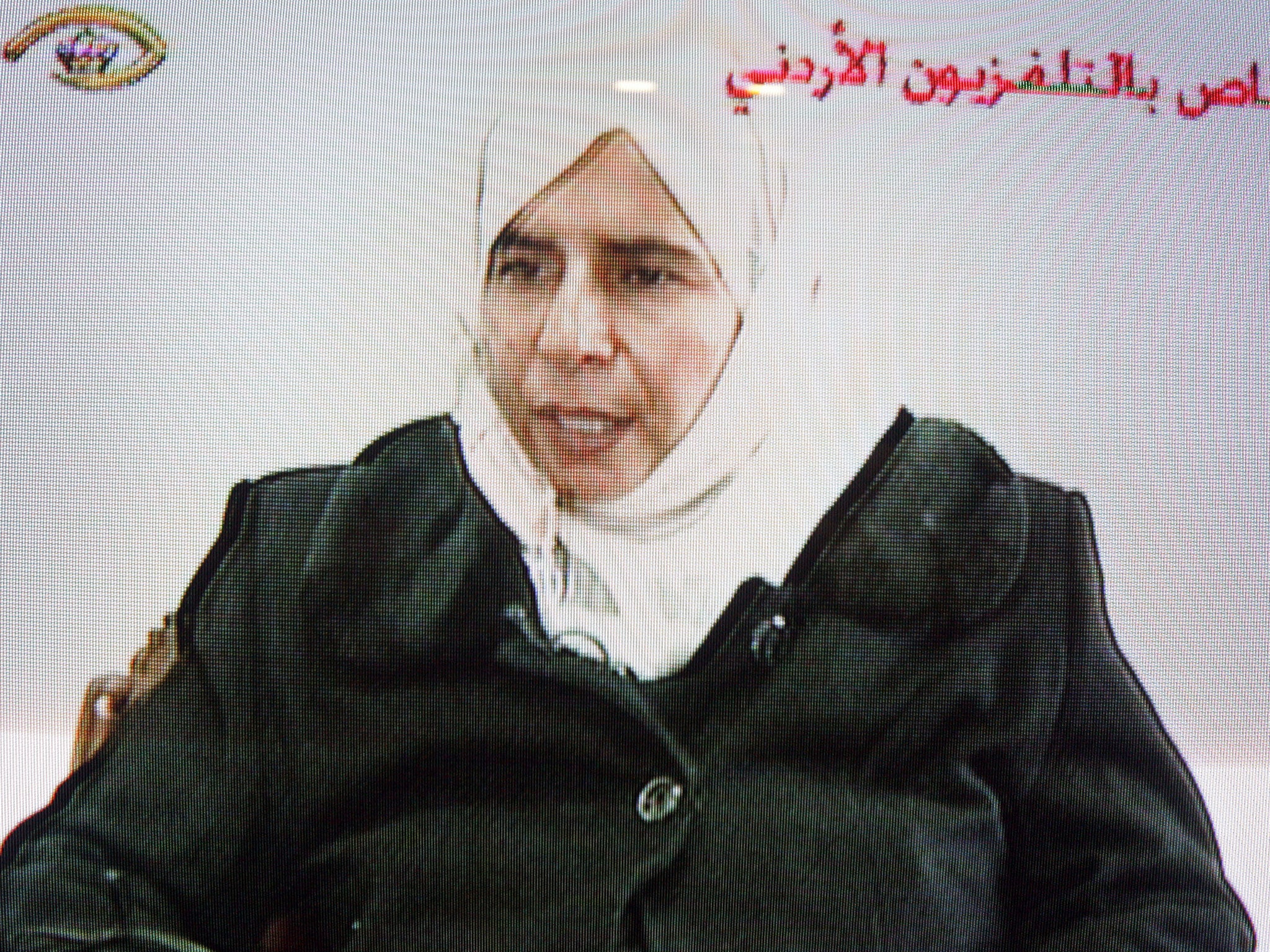Isis hostage: Jihadists switch focus from ransom to one well-connected female prisoner
Having murdered one of the prisoners, Haruna Yukawa, Isis is now asking, instead of money, for the release of a prisoner held in Jordan

Last week was important and symbolic for the Japanese government as it unveils its new, more robust defence and foreign policy. Shinzo Abe, the premier, was in the Middle East, ministers were visiting other friendly states, including Britain. The demand that came from Isis with the video of the two captives was also symbolic – $200m (£133m), exactly the same sum that Tokyo has pledged for the fight against the insurgency.
Japanese officials were cagey about whether any ransom would be paid. Tokyo has given in to extortion in the past, handing over $6m and six prisoners when the radical left-wing group, the Red Army, hijacked a flight from Paris to Tokyo in 1977 and $3m for four mining engineers in Kyrgyzstan in 1999.
Mr Abe, however, had criticised the concessions as examples of weakness.
The Japanese premier spoke to the US Secretary of State, John Kerry, as well as the Turkish and Egyptian Presidents, Recep Tayyip Erdogan and Abdel-Fatah el-Sisi, and Jordan’s King Abdullah. The options discussed, according to diplomatic sources, ranged from military action, to prisoner swap, to paying the ransom.
Having murdered one of the prisoners, Haruna Yukawa, Isis is now asking, instead of money, for the release of a prisoner held in Jordan, Sajida al-Rishawi – who took part in a bombing mission to Jordan in 2005 with her husband – in return for sparing the life of the second hostage, Kenji Goto.
There are precedents for both prisoner exchange with Isis. The Turks delivered no fewer than 180 jihadists, among them a dozen from Europe, including two British Muslims, to secure the release of 49 captive diplomatic staff last autumn.
There is surprise that Isis is asking for just one prisoner and also about who it is. Jordan, as well as other regional states, is holding far more high-value detainees. Rishawi is a low-level al-Qaeda operative and, while her husband, Ali Hussein Shamari, played a part in killing 57 hotel guests in Amman in a suicide attack, she failed in her mission.
But she does have important family connections; her brother, Mubarak al-Rishawi, who died in Falluja in 2004, was deputy of Abu Musab al-Zarqawi, who became America’s most wanted al-Qaeda enemy in Iraq before he, too, was killed.
Abu Bakr al-Baghdadi, the leader of Isis, was a lieutenant of Zarqawi and Mubarak al-Rishawi. He has since split from al-Qaeda, but reuniting Sajida with the family of his dead comrade would show the far reach of his growing power. Mr Abe’s projection of Japan as uncompromising towards terrorism will, however, be somewhat dented.
Subscribe to Independent Premium to bookmark this article
Want to bookmark your favourite articles and stories to read or reference later? Start your Independent Premium subscription today.

Join our commenting forum
Join thought-provoking conversations, follow other Independent readers and see their replies